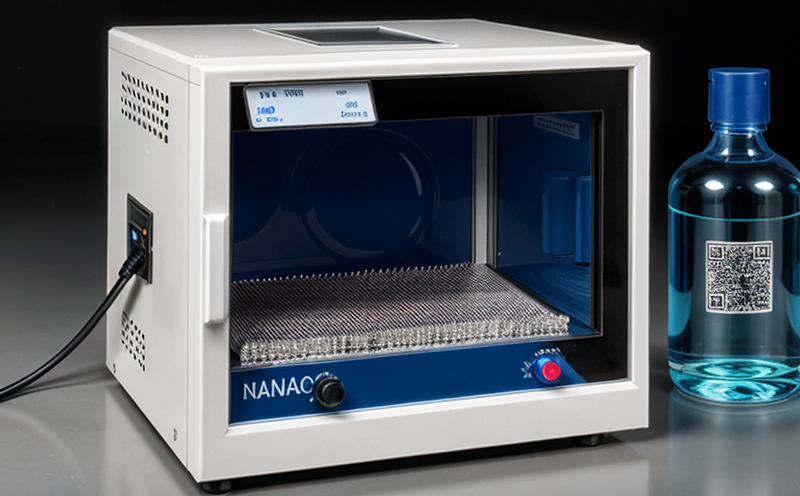ISO 21973 Stability Testing of Nanoparticle Suspensions
The ISO 21973 standard provides a comprehensive framework for the stability testing of nanoparticle suspensions, ensuring that nanomaterials are accurately characterized and their behavior over time is reliably determined. This service is crucial in sectors such as pharmaceuticals, cosmetics, electronics, and environmental science where nano-materials play an essential role.
Stability testing under ISO 21973 involves a series of rigorous procedures designed to assess the physical, chemical, and biological stability of nanoparticle suspensions. The primary goal is to ensure that the properties of these materials do not degrade over time or during transportation and storage conditions. This service is particularly important for regulatory compliance and ensuring product quality.
The testing process begins with the preparation of a suspension, where nanoparticles are dispersed in an appropriate solvent. Following this, various parameters such as particle size distribution, zeta potential, viscosity, and sedimentation rate are measured at regular intervals to observe any changes over time. The use of advanced instrumentation like dynamic light scattering (DLS) and laser diffraction provides precise measurements.
During the testing process, it is essential to maintain controlled conditions to simulate real-world scenarios. This includes temperature variations that mimic storage conditions, agitation levels to represent handling during transportation, and exposure to different pH levels to assess stability in varied environments. By simulating these conditions, we can predict how the nanoparticles will behave under actual use.
The results of ISO 21973 stability testing are critical for several reasons. They provide a basis for ensuring that nanomaterials meet regulatory standards and guidelines set by international bodies such as the United Nations Environment Programme (UNEP) and the European Commission. Additionally, these tests are vital for R&D teams to understand how nanoparticles interact with their environment over time.
For procurement departments, the results of stability testing can significantly impact material selection decisions. By knowing the stability characteristics of a nanomaterial, companies can make informed choices that minimize risks associated with potential degradation or contamination. This proactive approach helps in maintaining product consistency and reliability throughout the supply chain.
- Industry Applications: Pharmaceutical manufacturing, electronics production, environmental remediation projects, and cosmetics development.
- Customer Impact and Satisfaction: Ensuring regulatory compliance, enhancing product quality, reducing risks of degradation or contamination, and improving customer trust in the reliability of nanomaterials.
Applied Standards
The ISO 21973 standard is widely recognized for its robust approach to nanoparticle suspension stability testing. It aligns with other international standards such as ASTM E691 and EN 14024, which further enhance the reliability of the test results.
The standard specifies detailed procedures for sample preparation, testing methods, data analysis, and reporting requirements. This ensures that all participants in the testing process follow a consistent methodology, thereby reducing variability and increasing reproducibility.
Key components of ISO 21973 include:
- Selection of appropriate solvents for nanoparticle dispersion.
- Precise measurement of particle size distribution using advanced instrumentation like DLS.
- Determination of zeta potential to assess electrostatic stability.
- Monitoring of sedimentation rates and viscosity changes over time.
Industry Applications
- In pharmaceuticals, ISO 21973 helps in ensuring that nanoparticle-based drugs remain stable during storage and transport, thus maintaining their efficacy.
- In electronics, the standard ensures that nanomaterials used in semiconductor manufacturing do not degrade over time, preserving device performance.
- For environmental remediation, it helps in assessing the stability of nanoparticles designed to break down pollutants effectively.
- In cosmetics, this service is vital for ensuring product safety and efficacy by maintaining nanoparticle integrity during use.
Customer Impact and Satisfaction
- Meeting regulatory requirements, which enhances the reputation of companies in their respective sectors.
- Improving product quality by ensuring consistent performance of nanomaterials.
- Reducing risks associated with potential degradation or contamination, thereby increasing customer trust.
- Enhancing supply chain reliability and reducing material waste due to instability issues.





